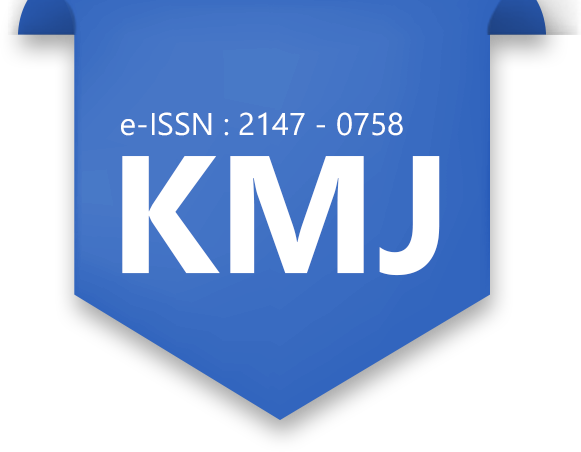
Surgical Process Anxıety From The Perspective Of Neurosurgery Patients In The Covid-19 Pandemic
Emrah Keskin1, Sevim Çelik2, Sibel Köstekli31Zonguldak Bulent Ecevit University Medical Faculty, Zonguldak2Bartın University Faculty of Health Sciences, Bartın
3Zonguldak Bulent Ecevit University Faculty of Health Sciences, Zonguldak
INTRODUCTION: This study was conducted to determine the effects of the fear created by the COVID-19 pandemic on the neurosurgery patients.
METHODS: In the descriptive-cross-sectional study, data were collected by phone call using a questionnaire and the COVID-19 Phobia Scale with 93 neurosurgery patients.
RESULTS: The patients experienced moderate levels of fear due to the pandemic, and due to this fear, 16.1% postponed their follow-up dates at least once. The COVID-19 fear levels were higher among those who had emergency surgery, those who could not get sufficient information on the surgery processes (p=0.01), those who were afraid that their treatment might not be completed (p=0.01) and those who went to the hospital for follow-up by bus (p=0.003). There were significant positive and strong relationships between the patients fear levels and their durations of hospitalization (p=0.001) and numbers of visits to the hospital for follow-up (p=0.01).
DISCUSSION AND CONCLUSION: The study showed that, although surgical treatment guidelines showed constant variation during the pandemic period, however high their anxieties may be, the patients did not want to delay their treatments. Acting carefully in eliminating the anxieties of patients and creating a standardized algorithm will be useful for patients to experience all stages of surgical treatment processes with comfort.
Keywords: Anxiety, COVID-19, fear, neurosurgery, pandemic, patient, surgical process
Covid-19 Pandemisinde Nöroşirurji Hastalarının Perspektifinden Cerrahi Süreç Kaygısı
Emrah Keskin1, Sevim Çelik2, Sibel Köstekli31Zonguldak Bülent Ecevit Üniversitesi Tıp Fakültesi, Zonguldak2Bartın Üniversitesi Sağlık Bilimleri Fakültesi, Bartın
3Zonguldak Bülent Ecevit Üniversitesi Sağlık Bilimleri Fakültesi, Zonguldak
GİRİŞ ve AMAÇ: Bu çalışma, COVID-19 salgınının yarattığı korkunun nöroşirürji hastaları üzerindeki etkilerini belirlemek amacıyla yapıldı.
YÖNTEM ve GEREÇLER: Tanımlayıcı-kesitsel tipte olan çalışmada veriler, telefon görüşmesi yoluyla 93 nöroşirurji hastası ile anket formu ve COVID-19 Fobi Ölçeği kullanılarak toplandı.
BULGULAR: Hastaların pandemiye bağlı orta derecede korku yaşadığı ve bu korku nedeniyle hastaların %16.1nin kontrol takip tarihlerini en az bir kez ertelediği tespit edildi. Acil ameliyat geçirenler, ameliyat süreçleri hakkında yeterli bilgi alamadığını bildirenler (p=0.01), tedavisinin tamamlanamayacağından korkanlar (p=0.01) ve takip için hastaneye otobüsle gidenlerin (p = 0.003) korku düzeyleri anlamlı olarak daha yüksekti. Hastaların korku düzeyleri ile hastanede kalış süreleri (p=0.001) ve takip için hastaneye başvuru sayıları (p=0.01) arasında pozitif yönde güçlü bir ilişki olduğu bulundu.
TARTIŞMA ve SONUÇ: Çalışma, pandemi döneminde cerrahi tedavi kılavuzlarının sürekli değişkenlik göstermesine rağmen, anksiyeteleri ne kadar yüksek olursa olsun, hastaların tedavilerini ertelemek istemediklerini göstermiştir. Hastaların kaygılarının giderilmesinde dikkatli davranmak ve standartlaştırılmış bir algoritma oluşturmak, hastaların cerrahi tedavi süreçlerinin tüm aşamalarını rahatlıkla deneyimlemeleri için faydalı olacaktır.
Anahtar Kelimeler: Anksiyete, cerrahi süreç, COVID-19, hasta, korku, nöroşirurji, pandemi
Manuscript Language: English












